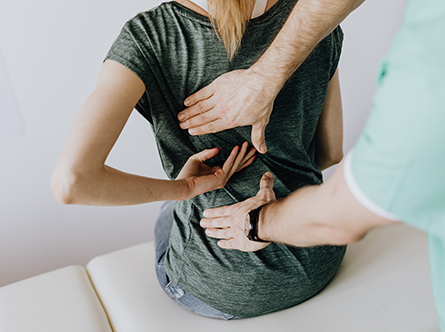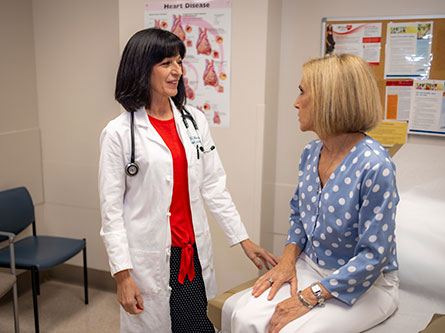Back pain is one of the most common reasons people visit the doctor. Most Americans will experience lower back pain at some point in their life. The reasons vary, from acute sprains from sports injuries to longer-term diseases caused by a variety of factors.
Here are eight tips to ease some pain and keep your back healthy:
1. Strengthen your core muscles
Your lower back is under the stress of supporting your entire upper body. Surrounding muscles in your back need to be toned to support your spine and reduce pressure on your lower back. Our core muscles are rarely used during everyday activities, so they need to be toned through specific, targeted exercises. Take a few minutes each day to do a couple of simple core exercises.
2. Stretch daily
Many back problems are caused by tight muscles. If your back muscles are tight, they put added stress on your entire spine, including your joints. Get into a habit of daily stretches to promote your spinal health.
Learn about how to improve your stretching and flexibility
3. Avoid sitting with poor posture
If your sitting posture is poor, the discs in your lower spine are loaded even more than when you're standing. If you must sit for long periods of time, remember to get up and walk around every so often.
4. Take walks
Walking is a very safe and good exercise. Brisk walking at work or outside will help you to maintain a healthy weight and keep pressure off your back.
5. Lift correctly
When you lift something heavy, it's very easy to twist the wrong way. This can lead to muscle spasm and pain. Use proper body mechanics by engaging your leg muscles, not your back, when you pick up heavier items. Get help if the item is too much for you to lift alone.
6. Reduce pressure on your back when you sleep
Sleeping flat on your back puts pressure on your spine. Elevate your knees slightly by placing a pillow under them. If you're a side sleeper, put a pillow between your knees to reduce pressure on your back.
Learn why sleep is important to your health and tips to sleep soundly
7. Watch your weight
Extra weight puts a strain on your back. In order to deal with extra weight, your spine can become tilted and stressed unevenly. The back may lose its proper support and develop an unnatural curvature of the spine over time.
See if weight loss medications, like Wegovy, are right for you
Learn about Ozempic for weight loss: Does it work and what do experts recommend?
8. Quit smoking
Smoking restricts blood flow to the discs that cushion your vertebrae. This could lead to quicker disc degeneration. Smoking also reduces calcium absorption and new bone growth. This increases the risk of a fracture due to osteoporosis, a condition where bones become weak and brittle.
Get tips to quit tobacco and stop smoking
Get information on our Stop Tobacco Program
Even with the best prevention, back injuries can happen and interrupt daily life to the point where intervention is necessary. The UC Davis Spine Center can help with your spine wellness and pain care.
When surgery is necessary, our experienced neurosurgical and orthopedic surgical teams have the most advanced technology to offer the right surgical treatments. For information, including clinical trials that need participants, check out the UC Davis Spine Center.




